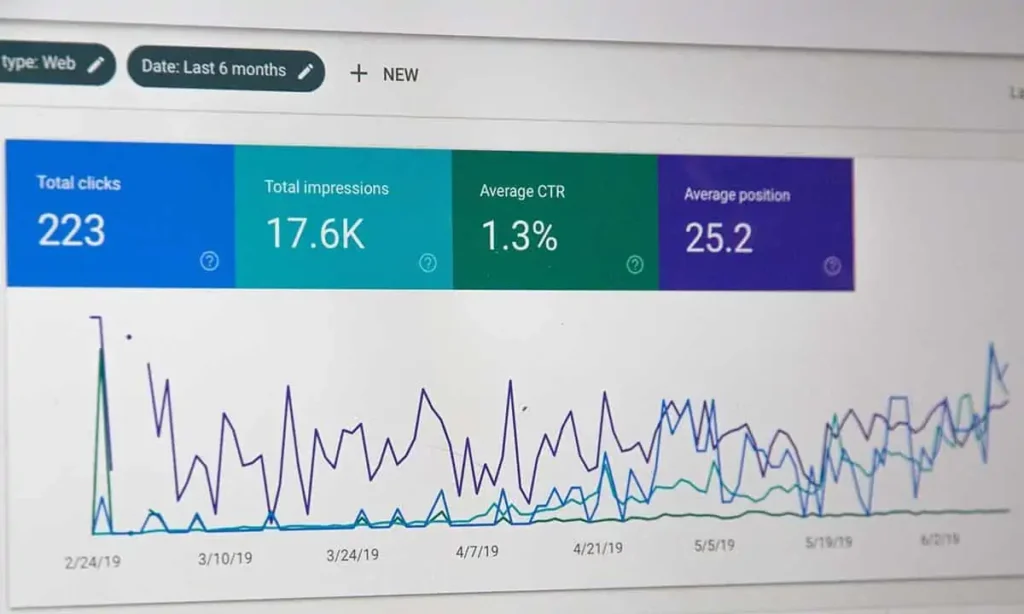If you want to know how to rank well on Google, this overview will tell you everything you need to know.
It was just under a year ago that the quality rating guidelines for Google Search were last updated. As most people will know, despite the constant updates, Google isn’t always completely transparent, and the inner workings of their complex search algorithms are not always easy to interpret.
In 2023, a new version of the quality rater guideline was published. Google published a 160+ page search rater guideline document that shares how the human quality raters who contract for Google review and rate Google’s search engine results.

What Is A Google Search Quality Evaluator?
There are said to be more than 10,000 people who work as Search Quality Evaluators or Search Quality Raters for Google on a contractor basis. They perform manual searches across the world wide web and report back on their findings to help Google improve its search technology.
Why does this matter?
Google’s Search Quality Guidelines are what get used by the people who quality check the effectiveness of the SERPS and websites. While they do not directly impact the individual rankings of a site, their findings are used to provide updates that improve the Search Algorithm.
The new version of the 2023 Google Search Quality Guidelines provides more in-depth instructions about content creator expertise, interstitial pages, and now includes EAT within the ‘Page Quality’ section.
Page Quality, Interstitials, and Content Creator Expertise
- E.A.T. Updates for 2023
Whereas previously, Google focused its attention on E.A.T. (Expertise, Authority, and Trust), it is now using the term ‘Page Quality’ much more frequently in its place. This change could be indicative of how Google now wants its quality evaluators to approach their task of rating page content.
- Interstitials Updates for 2023
There is a much bigger focus being placed on interstitial pages in this latest update. Particularly within the distractive ads/SC section, this indicates that for those who use these techniques intrusively, they may now start to experience a reduction in their ratings. For sites that use ads or interstitial pages, they now need to ensure their adds do not prohibit a visitor’s ability to reach the core content on a page.
- Content Creator Expertise Updates for 2023
This latest update provides more detailed instructions about the expertise of the content creators. The resultant impact will most likely result in additional scrutiny on content that is either questionable or considered to be poor quality.
After the core 2023 update, John Mueller from Google made a few key points during an interview. This provided a few further insights into what practical changes you can make on your site, specifically in relation to content creator expertise.
Firstly, people need to be able to recognize who your Authors are, so always ensure that for your blogs; you publish them with a genuine picture of the person who wrote the article and use their correct name. Finally, make sure you always include an Author by-line or Author credentials next to any blog you publish.
If you currently push out your blogs under the guise of the business, rather than the person who wrote them, then this needs to change.
Summary of Updates
Although the most recent search quality guideline document has only grown by a couple of pages, and the vast majority of the content is largely the same, these three core amendments could potentially indicate some of the changes Google have made to their search algorithm.
As such, they need to be carefully considered by anyone who wants to know how to keep their website rankings high.
- Carefully vet the information that is presented on your website to ensure its correctness and quality.
- Always make sure that your Ad/SC content does not prevent a user from viewing and underlying content.
- Make sure your content provides meaningful information to visitors, that is relevant to their search and to your business.
- Give your authors a personal bio, a picture, and make sure your blogs are accredited to a person and not simply published by the company.

What Does Google Classify as a High-Quality Website?
The Google Search Quality Guidelines are ultimately focussed on helping people find high-quality sites quickly.
They do this by reducing the site rankings for websites that provide low-quality content.
There are a number of key questions you need to ask yourself when looking at your website; the result of which will help place you into the mindset of Google, and ultimately help you understand what they count as a high-quality website.
- Can you trust the information on the website?
- Is the content written by someone who knows the subject well?
- Are there any factual, spelling, or stylistic mistakes?
- Is the content original?
- Is the information provided comprehensive or shallow?
- Would you bookmark or share this page with another friend or peer?
One of the core messages that Google has been trying to deliver since the roll-out of their Panda Update is that quality content counts.
Even if you have a small area of your website with low-quality content, this can impact the entire ranking of a website overall.
For this reason, taking a site-wide review of your content is key.
Google Search Guidelines Overview
Now that we have covered the latest 2023 updates for Google’s Search Quality Guidelines, here are some of the other major elements they generally focus on.>
- Mobile Users
From loading speeds to fully responsive sites, the mobile user experience matters to users just as much as it matters to Google. Experts forecast that by next year, more than 30% of searches will be voice searches, and as you will already appreciate, searching for something with your voice is different to performing a manual search by typing.
Voice search is more conversational, and it is done using longer search terms, that are considered to be more natural. Because a voice search will only read out the first result, Google is already starting to formalize clear guidelines.
The vast majority of these echo those which we have already mentioned in this post; the content needs to meet the needs of the person performing the search. Voice search needs to provide a quick and succinct response to the search query. Grammatical correctness is also key.
- Page Quality
Is there a beneficial purpose for the page or is created simply to meet ranking requirements?
Pages need to be created with the intent of helping visitors find the information they need. If you are not writing your content to help people in some way, then you can expect a low-ranking. Page quality is now ranked on a scale of lowest, low, medium, high, and highest. In order to have a good page quality score, every piece of the content needs careful attention; from the meta description to the title, the spelling, the stylistics, the reputation of the author, and more.
Exaggerated content or intrusive ads can also severely impact upon the page quality score.
YMYL Content
Short for ‘Your Money or Your Life; if you belong to a business that handles financial transactions, shopping, medical, legal, news articles, safety, child-related, or anything else that could impact the future happiness, financial stability, personal safety, or health of a user; then this point matters. The page-quality guidelines for these pages are much stricter. They need to be written by experts, authoritative, and factually based.
- User Experience
In Google’s Terms, the ‘needs met’ guidelines refer to the search query versus the result. Quite simply, where the users’ needs met when they visited your website. The key point to remember is that when someone turns to Google, they want an answer to a question.
While it is tough to earn their highest rating, there are a couple of key things you can do to ensure you get a good score.
- Be clear with the information you provide and say what you mean. For comprehensive topics, you should cover them in enough detail to clearly answer any questions a user has.
- Do not try to tempt people with a promise of delivering, then fail to deliver by saying something different. Always be honest and upfront.
- User experience focusses firmly on our early point about the mobile experience. Interaction and layout are key factors that need to be fully addressed for a good search quality score.
Summary
Mobile optimization, reputation, and expertly written content are all key.
Factoring page quality, YMYL, and E.A.T into any content strategy are key, as the need for high-quality content from the 2023 Google Search Quality Guidelines has been made abundantly clear.
The content you create must be useful for users, and it needs to give them the answers they’re searching for.
Quite simply, if your website is not optimized for mobile, then there is very little chance that Google will view your website favorably.
They dedicate more than 25% of their search quality guideline to the mobile user experience, with this in mind, your entire website must be optimized fully all mobile devices.
